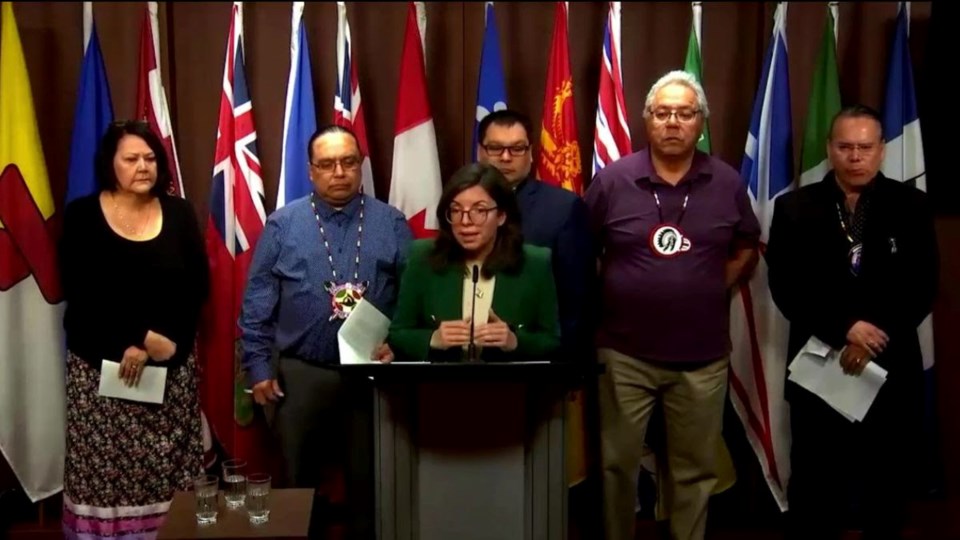The quality of heath care provided by federal nursing stations is declining and costing people their lives, Northern Manitoba First Nations leaders and MP Niki Ashton said during a press conference in Ottawa April 3.
NDP MP Niki Ashton, who represents the Churchill-Keewatinook Ask riding, was joined in Ottawa by the chiefs of two First Nations in her district as well as the grand chiefs of the Assembly of Manitoba Chiefs, Keewatin Tribal Council and Manitoba Keewatinowi Okimakanak.
Nursing stations often seem like little more than Tylenol dispensaries, said Manto Sipi Cree Nation Chief Michael Yellowback, noting that two God’s River residents have died in the last nine months after having been denied further care by nurses at the community’s health centre. One was a 48-year-old man who died two weeks after being sent home and denied a fuller health assessment after going to the nursing station. The other, a 37-year-old mother of five children, died under similar circumstances.
With the number of people who are given Tylenol and sent back home, it seems like “they think that
is a wonder drug for everything,” said Yellowback, noting that residents of remote and isolated first Nations, particularly those that are fly-in communities except during winter road season, don’t have the option of seeking a second opinion, as it costs over $1,000 round-trip to fly out of such communities and that, in the case of his, 80 per cent of its residents are on a fixed income. The nursing station is frequently understaffed and a doctor only visits God’s River every two weeks.
According to information obtained by Ashton, 33 per cent of Indigenous Services Canada-operated nursing stations are not meeting community needs and all of them in remote and isolated communities have had periods of reduced capacity due to staffing shortages in the past two months.
“We know there aren’t enough nurses to meet the community’s needs,” she said, noting that the staff who are working are in danger of experiencing burnout that could prevent them from working down the line. “All Manitoba and Ontario nursing station ran below capacity for at least one day [in the last two months].”
On-reserve nursing stations aren’t equipped to do blood tests or give EKGs, said Grand Chief Walter Wastesicoot of Keewatin Tribal Council, which represents 11 Northern Manitoba First Nations. and unlike Canadians in larger communities, they are often at the mercy of whether a physician decides to accept their case.
“There has to be an attending physician on the other line that is willing to accept you” in order to receive a medical assessment over the phone, he said.
At the nursing stations themselves, examinations are perfunctory, said Shamattawa First Nation Chief Jordna Hill.
“There’s not really much of a proper assessment, maybe half-ass, maybe 40 per cent assessment being done on our people,” he said, with nurses often doubting the sincerity of residents’ complains. “We do know how we feel in our own bodies when something’s wrong with us.”
In the immediate short-term, First Nations need full complements of nurses and also at least one full-time physicians in their nursing stations, said Yellowback. Further down the line, better health services must be established, said Assembly of Manitoba Chiefs Grand Chief Cathy Merrick.
“We should have full adequate hospitals in our communities where our women can give birth,” Merrick said.
No one wants special treatment, said MKO Grand Chief Garrison Settee, just equal treatment.
“It’s as if Canada is saying [First Nations residents] don’t matter as much as the people in the rest of Canadian society but were here to say our people matter too.”




